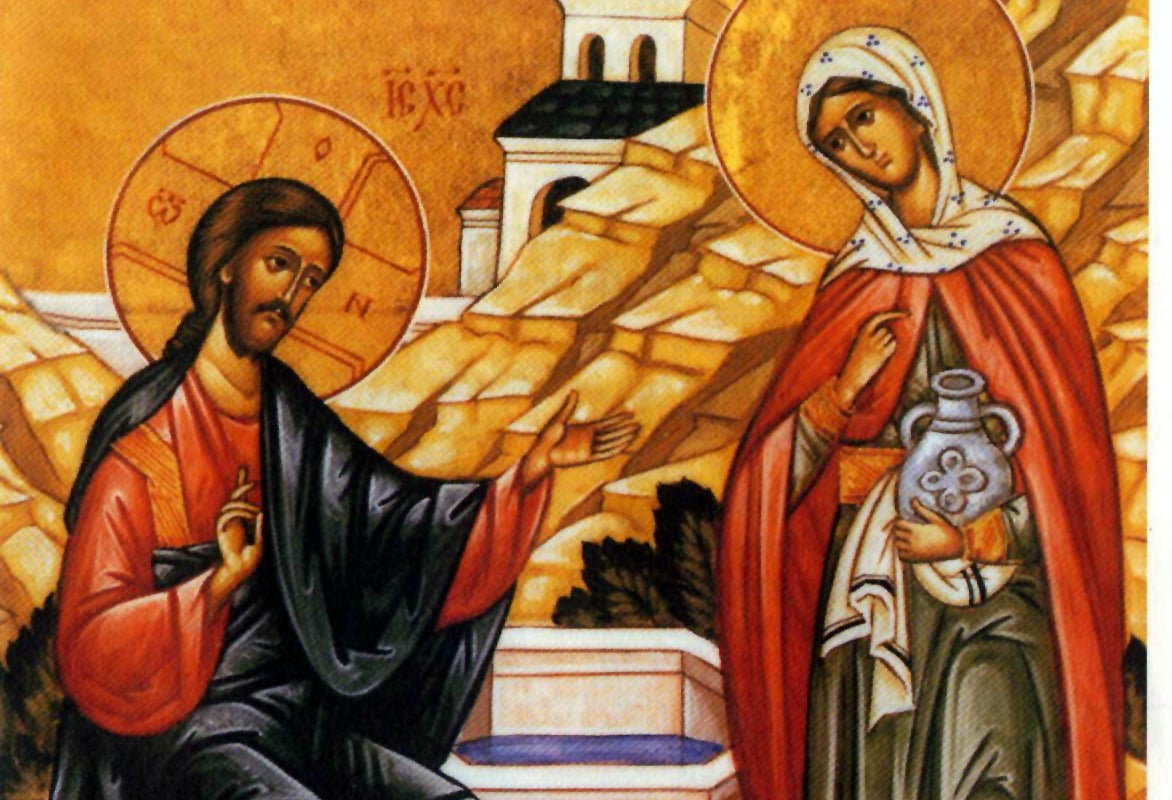The woman said to Him, “Sir, I perceive that
You are a prophet. Our fathers worshiped on this mountain, and you Jews say
that in Jerusalem is the place where one ought to worship.” Jesus said to her,
“Woman, believe Me, the hour is coming when you will neither on this mountain,
nor in Jerusalem, worship the Father. You worship what you do not know; we know
what we worship, for salvation is of the Jews. But the hour is coming, and now
is, when the true worshipers will worship the Father in spirit and truth; for
the Father is seeking such to worship Him. God is Spirit, and those who worship
Him must worship in spirit and truth.” The woman said to Him, “I know that
Messiah is coming” (who is called Christ). “When He comes, He will tell us all
things.” Jesus said to her, “I who speak to you am He” (John 4:19-26).
It is
commonly held that the Samaritans were descendants of the Jews who remained in
Palestine after the Assyrians defeated Israel. The Samaritans inhabited the
area between Judea and Galilee. They came from mixed marriages between Jews and
Assyrian settlers who entered the Promised Land.[1], [2] For this reason the Jews of the day despised
the Samaritans. They also regarded the Samaritan’s observance of Judaism as
corrupted. It goes without saying that contact with the Samaritans was to be
avoided. Due to the long history of animosity between the Jews and the
Samaritans, it would be surprising that a Jew would even speak to a Samaritan;
what is even more surprising is that the Samaritan with whom Jesus speaks, and
asks for a drink, is a woman. Jesus, however, used the opportunity of the
water, and the well, to preach the gospel.
Living water,
quite simply, is the Holy Spirit. Jesus explains this to the Jews: On the last
day, that great day of the feast, Jesus stood and cried out, saying, “If anyone
thirsts, let him come to Me and drink. He who believes in Me, as the Scripture
has said, out of his heart will flow rivers of living water.” But this He spoke
concerning the Spirit, whom those believing in Him would receive; for the Holy
Spirit was not yet given, because Jesus was not yet glorified.[3] While no specific scripture verse is cited by either Jesus or St. Luke, Jesus'
words call to mind the words of the prophet Isaiah: The Lord
will guide you continually, and satisfy your soul in drought, and strengthen
your bones; You shall be like a watered garden, and like a spring of water,
whose waters do not fail.[4] These
waters give life and strength. That Jesus is speaking of the power of the Holy
Spirit becomes evident on the day of Pentecost.[5] Jesus connects the application of water, better known as baptism, with the
giving of the Holy Spirit. It is through baptism that the Spirit is given because baptism is God’s word connected to water. It is the washing of rebirth
and renewal by the Holy Spirit,[6] water that is included in God’s command and combined with God’s word of promise;
it washes away our sins, clothes us with Christ, connects us to His death and
resurrection, and saves us.[7] It
is only natural that Jesus should have this conversation about living water
with this woman by the well, since He and His disciples were so recently baptizing
people in Judea.
Jesus, who
proclaims to the Samaritan woman that He is the promised Messiah, says that it
is now the hour when true worshipers will worship the Father in spirit and
truth. Jesus is saying that true worship is that which is done in His name and
through Him; it no longer depends on a specific location, like the temple in
Jerusalem. Temples don't matter, mountains don't matter; faith in Messiah is
what matters. The Lord is near to all who call on Him in truth,[9] that is, trusting in God's promise of redemption through Christ. Jesus is that
promise in the flesh. How do we get that faith? Is faith in Christ something we
decide to have? Do we produce it in ourselves? Jesus says that the Father is
seeking true worshippers to worship Him. In other words, He comes to us, we do
not come to Him. He binds that work of the Spirit, of creating faith in the
hearts of men, to His Word,[10] whether preached, read,
meditated upon, eaten and drunk in the Lord’s Supper, or applied to the body in
the waters of Holy Baptism. He comes to us and works faith in us by the power
of the Holy Spirit, through God’s means of Word and Sacrament, just as He came
to the woman of Samaria.
[1] J. I
Packer, and M.C. Tenney, Illustrated Manners and Customs of the Bible (Nashville, TN: Thomas Nelson Publishers,
1980) p. 509
[2] 2
Kings 17:24-28, 33-34
[3] John
7:37-39
[4] Isaiah
58:11
[5]
John 16:7; Acts 1:4-8
[6]
Titus 3:5
[7]
Matthew 28:19-20; Mark 16:16; Acts 2:38-39; 22:16; Romans 6:3-5; 1 Corinthians
6:11; Galatians 3:27; Colossians 1:13-14; 1 Peter 3:18-22;
[8]
John 3:22
[9] Psalm
145:18
[10]
John 15:26; 16:13; Romans 10:17

No comments:
Post a Comment